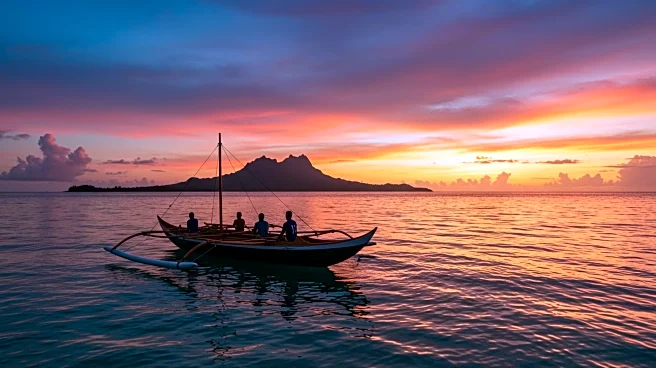What is the story about?
What's Happening?
The CHamoru people of Guam, along with Hawaiians, Māori of New Zealand, and other Pacific Island cultures, have experienced significant loss of self-determination and autonomy due to colonization and external control. Historically, these groups had established social structures and governance systems that allowed them to manage land, resources, and cultural practices independently. However, Spanish colonization in the 17th century, followed by U.S. control after 1898 and the impacts of World War II, undermined CHamoru authority and imposed foreign religious and administrative systems. Similarly, Hawaiian society was disrupted by missionaries and colonists, leading to the overthrow of the Hawaiian Kingdom in 1893 and subsequent U.S. annexation in 1898. Māori tribes in New Zealand faced political power decline after the Treaty of Waitangi of 1840 was frequently violated. Other Pacific nations like Samoa, Fiji, and Palau also saw indigenous governance replaced by colonial powers.
Why It's Important?
The loss of self-determination among Pacific Island cultures has profound implications for their cultural heritage and identity. Indigenous languages, which are central to cultural identity, were often marginalized or suppressed, leading to near extinction in some cases. Efforts to revive these languages are ongoing, with Hawaiian and Māori languages experiencing successful revitalization. The erosion of land ownership has also impacted traditional agriculture, fishing, and communal living, diminishing social structures and cultural practices. Despite these challenges, Pacific Islanders have shown resilience by reclaiming their heritage through cultural festivals, language courses, and traditional practices. The ongoing revival of self-determination and cultural heritage is crucial for empowering these communities to control their political, social, and economic development.
What's Next?
Pacific Islanders are increasingly demanding self-determination and reclaiming customary laws and practices. Efforts to restore language, governance, and cultural identity are critical for preserving heritage and empowering communities to guide their own sustainable futures. These initiatives aim to ensure that traditions and identities inform decision-making for future generations, making Pacific Island societies more resilient. The ongoing revival of cultural heritage and self-determination provides a foundation for a future rooted in both past and present agency.
Beyond the Headlines
The cultural revival among Pacific Islanders highlights the ethical and cultural dimensions of colonization's impact. The resilience shown by these communities in reclaiming their heritage underscores the importance of cultural preservation in the face of historical injustices. The revival efforts not only aim to restore cultural identity but also empower these communities to navigate their own futures, ensuring that their traditions and values are integral to their development.















